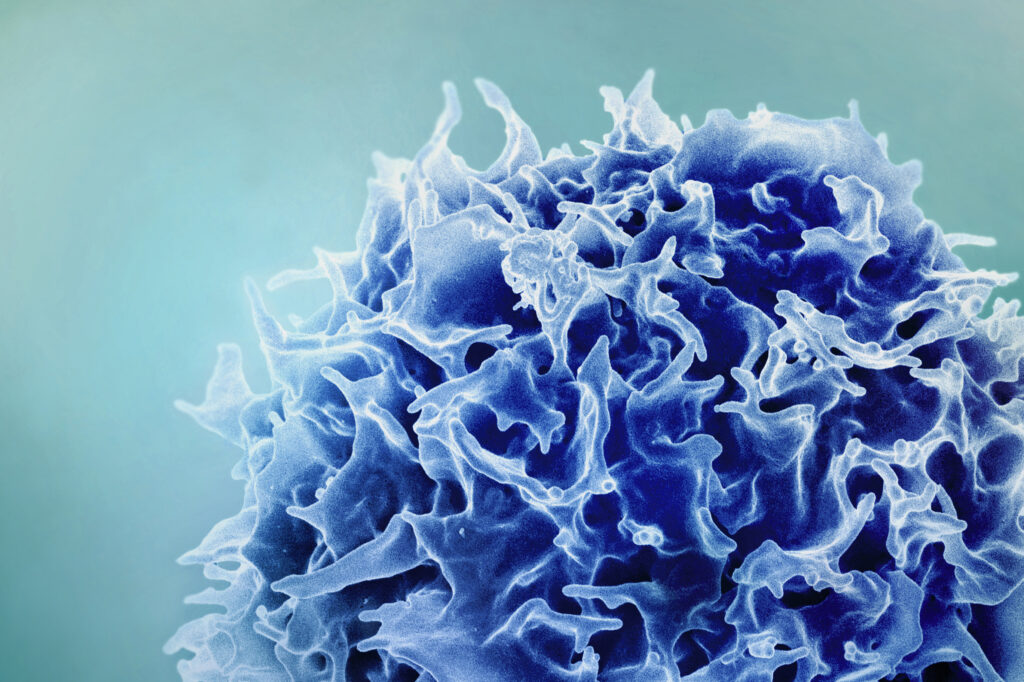Limula wins Innosuisse grant to integrate non-viral gene transfer technology to its automated Cell and Gene Therapy manufacturing platform

Image CC-BY NIH NIAID (Source)
Swiss Start-up Limula receives over EUR 1 million of additional non-dilutive funding to expand its closed, automated and modular cell and gene therapy manufacturing platform
- In a collaboration with researchers at the University of Geneva, Limula will develop a technology for non-viral gene transfer to enable next-generation CAR T cell therapies
- Prof. Denis Migliorini brings key expertise in the pre-clinical development of novel gene- edited cells for therapeutic applications
- The project financed by the Swiss innovation agency Innosuisse will lead to the integration and validation of a new proprietary module augmenting the solution offered by Limula
Lausanne, 1 December 2022 – Limula SA, a Life Science start-up based in Lausanne, Switzerland, announces today the launch of a project in collaboration with the Brain Tumour and Immune Cell Engineering Group (BTICE) led by Prof. Denis Migliorini at the University of Geneva. Over the past five years, six cancer treatments based on gene-edited cells called chimeric antigen receptor (CAR) T-cell therapies have been approved in the USA and in Europe, with many more being evaluated in clinical trials. Spectacular results were obtained in young children suffering from acute lymphoblastic leukaemia, but also in adults with other forms of blood cancers, some of them remaining cancer-free today, more than a decade after the treatment. These ‘living drugs’ leverage the latest discoveries in cellular engineering and onco-immunology, and provide the immune system of the patient with a significant boost against previously uncurable tumours. With more types of cancers being addressed, CGT products have the potential to cure millions of patients annually. Unfortunately, many of them may not benefit from these life-saving treatment because CAR T cells are currently incredibly difficult and expensive to produce at scale, typically costing half a million Swiss francs (or $) or more per patient. To address this problem, Limula is developing a closed, automated and modular platform for the production of therapies based on gene edited cells. By carrying out all steps of this complex process in a single self-contained device, the technology replaces large sterile facilities that are costly to build and maintain. It also prevents errors due to human manipulations. It is an enabling tool for clinical centres and biopharma companies involved in the development of new CGT products, from pre-clinical research to routine patient treatment, and is a key component of a scalable solution to rapid and safe manufacturing of CGT from the patients’ own cells.
Supporting the non-viral approach to CGT
The project financed by Innosuisse will support the development of an innovative approach to gene editing, allowing to collect critical biological data and paving the way towards the future commercialisation of this technology. “Every CGT company we talk to is actively looking for a solution that can simplify their process development and later regulatory process. There is a clear and urgent need, and we are thrilled to now have the means to expand our technology to cover non-viral methods for cell engineering,” says Dr. Yann Pierson, CTO of Limula. In the vast majority of cell therapies under development, the introduction of the chimeric gene that gives CAR T cells their exceptional antitumour activity is performed using lentiviral vectors. These non-replicating viruses can infect the patient’s immune cells, enter the nucleus, and precisely introduce the gene of interest into the cell genome. But these genetic tools are themselves very complex and expensive to produce, and add a significant cost to the production of CAR T cells. To make the process cheaper and more robust, alternative approaches for the delivery of genes into cells have been developed. Although they can be based on a variety of methods, they all have in common the ability to create tiny holes in the cell membrane for genetic material to enter the cell without affecting its viability.
Building such a complex technology requires a highly interdisciplinary team. Led by Limula, the project is hosted in the laboratory of Prof. Denis Migliorini, a clinician and expert in CAR T cell therapies working at the faculty of Medicine of the University of Geneva. “Manufacturing is one of the greatest challenges in the broad adoption of CAR-T cell therapies. We were determined to bring the right research partners on board to maximise chances of success. Lausanne is the perfect environment for such a project, with world-class institutions hosting experts in all domains required to achieve this technological feat,” says Dr. Luc Henry, CEO of Limula. The goal is to deliver a scalable and cost-effective manufacturing platform as soon as possible in order to help bring next-generation CGT products into the clinic.
About Limula
Limula SA is a Life Science start-up based in Lausanne, Switzerland. The company was established with the explicit mission to help bring the most personalized cancer treatments to the patients in need, at reasonable cost, wherever they are. T o achieve this goal, Limula multidisciplinary team provides a unique cell processing technology, targeting end-to-end production of gene-edited cell therapies at scale, through automation and standardisation.
About BTICE
The Brain Tumour and Immune Cell Engineering group led by Prof. Denis Migliorini develops next generation CAR T-cell therapies against glioblastoma multiforme (GBM), a malignant tumour affecting the central nervous system. His research team is affiliated with the Swiss Cancer Center Leman (SCCL) and is located at the AGORA Cancer Research Centre in Lausanne.
Contact Details
Dr. Luc Henry, Chief Executive Officer
[email protected]
www.limula.ch